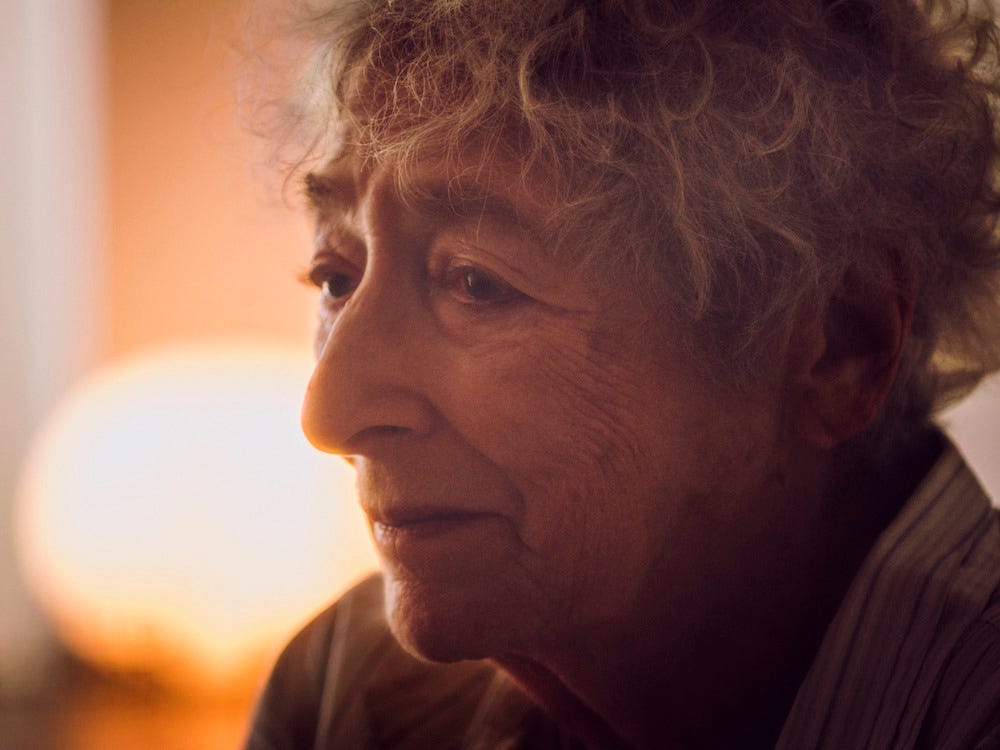I was 24 when I first met Lore Segal. I was interning for Melville House and they were re-issuing her 1976 novella, Lucinella; I was tasked with pouring wine at the book party in her Upper West Side apartment.
Lore, then 81, had lived well over half her life in that building, and the rooms practically glowed with a kind of domestic stability I will probably never understand. At the time, Lore was more than three times my age, but she’d held fewer addresses in the city than I had in my restless three years moving from sublet to sublet in Manhattan and Brooklyn.
A decade later, when Melville House asked me to write an introduction to a new collection of her essays and stories, The Journal I Did Not Keep, I only had one request: Could I have a coffee with her? She agreed to host me and her editor to speak about the collection, and the introduction, and her decades of writing.
At the age of ten, in 1938, Lore left her native Austria for England as one of the first Jewish children on the Kindertransport program. Once she was in England, she successfully petitioned the refugee committee with letters begging them to bring her parents to England as well. In her early twenties she immigrated to New York City with her mother (her father had died in England), and by her thirties she was married, publishing stories in The New Yorker, writing books, and had moved into the building on the Upper West Side where she lived for the rest of her life and where she died today. (She did move once, from one floor to another.)
The stability of the life she found, especially after a childhood of such extreme and sudden displacement, exemplifies a certain kind of a New York City fantasy: to be from somewhere you don’t or simply can’t belong, and to come here and find a place that fits you perfectly.
In late 2022 on a visit to New York, I was again thinking about Lore’s work and life and very long-term housing. Her first novel, a coming of age story based on her childhood, was called Other People’s Houses, and though my circumstances were very different, it occurred to me that I had also been living in other people’s houses, nearly non-stop, for about twenty years. From the apartment of a pair of jazz musicians in Crown Heights, to a painter’s live/work space in Dumbo, to a few boyfriends’ apartments, to friends’ homes in Mexico City and Los Angeles, other people’s homes had been a refuge and necessity and sometimes an adventure, but that year I was starting to realize that living this way had come at a cost. It was difficult to even imagine having own space without thousands of caveats.
Though Lore and I were from drastically different generations and backgrounds, my curiosity about what a life that stable might feel like led me back to her building facing the Hudson river in 2022. Fourteen years had passed since I had been the intern at her book party, and it had been about three years since I’d written the introduction to The Journal I Did Not Keep. The apartment hadn’t changed a bit. The heights of her children and friends were marked inside the coat closet door. A pair of googly eyes transformed a light switch into a silly face. Light still poured in as ever from the west and a Maurice Sendack portrait of Lore as a monster still hung in the hallway.
Lore, too, was more or less the same. She still, at ninety-four, kept her morning writing routine, still published her work in The New Yorker, still regularly met her friends for lunch. I was amazed by the constancy of this life and home, and Lore, ever the skeptical though curious New Yorker, looked back at me in amused confusion. She asked why I wanted to talk to her again, and I told her I wanted to know what it felt like to be in the same place for so long, to have this kind of permanence in a city that seemed to change and move so quickly.
She was very kind to me as she tried to answer, but had to admit she had absolutely no idea how to begin to even think about such a question.






Sad news. “The Reverse Bug” is a perfect short story. I go back to it all the time.
A beautiful tribute. She was one of a kind.